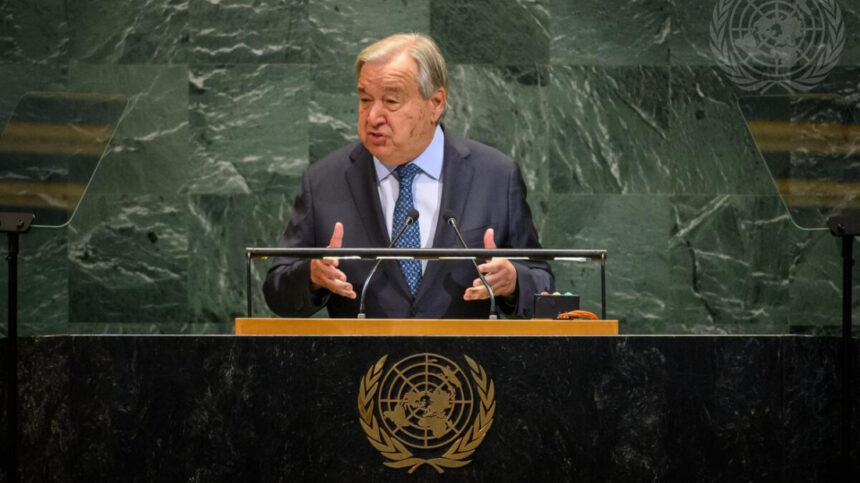In a bold move signaling growing urgency in global climate diplomacy, UN Secretary-General António Guterres has called on nations worldwide to submit ambitious new climate action plans by 2035, marking a critical escalation in the international response to climate change. The announcement comes as climate scientists warn that the window for effective action is narrowing rapidly, with global temperature increases threatening to surpass dangerous thresholds.
“The climate crisis is spiraling out of control, yet collective action remains inadequate,” Guterres stated during his address at UN headquarters. “Nations must demonstrate unprecedented commitment by 2035 with plans that drastically reduce emissions and accelerate the transition to renewable energy.”
The Secretary-General’s directive represents the latest development in the framework established by the Paris Agreement, which requires countries to periodically update their Nationally Determined Contributions (NDCs). These updated climate plans are expected to outline specific pathways toward achieving net-zero emissions and detail how countries will adapt to climate impacts already unfolding across vulnerable regions.
Climate finance emerged as a central component of the Secretary-General’s message, with Guterres emphasizing that developed nations must fulfill their long-standing pledge to provide $100 billion annually to support climate initiatives in developing countries. “Climate justice demands that those who contributed least to this crisis but suffer most from its effects receive substantial support,” he noted.
According to CO24 World News analysis, the 2035 deadline arrives amid troubling signs that global emissions continue to rise despite scientific consensus that they must fall by 45% by 2030 to limit warming to 1.5°C. Recent data from the World Meteorological Organization confirmed 2023 as the hottest year on record, with 2024 potentially on track to surpass it.
Experts from the CO24 Business desk highlight that the economic implications of this climate push are substantial, with trillions in investments required to transform energy systems worldwide. However, economic analyses increasingly demonstrate that the costs of inaction far exceed the price of transition.
Canada’s response to this call will be closely monitored, as the nation faces the dual challenge of being a major fossil fuel producer while simultaneously pledging to achieve net-zero emissions by 2050. Canada News sources report that domestic climate policies remain contentious, with tensions between provincial and federal authorities complicating implementation efforts.
Environmental groups have welcomed Guterres’ announcement but stress that 2035 may be too late for meaningful action. “While we appreciate the Secretary-General’s leadership, climate science tells us we need transformative action this decade, not just plans for the next,” said Dr. Eleanor Ramos of the Global Climate Coalition.
The push for 2035 climate plans represents a critical juncture in humanity’s response to environmental breakdown. As nations begin formulating these strategies, the fundamental question remains: Will this latest diplomatic initiative finally generate the political will necessary to address the climate crisis at the scale and speed science demands?











